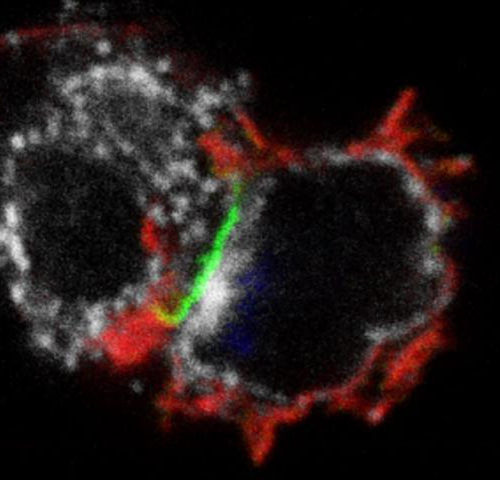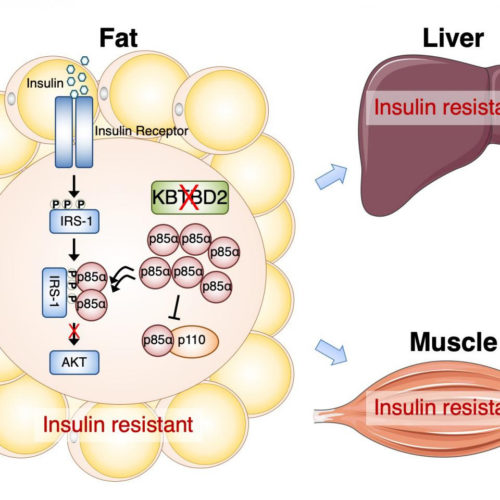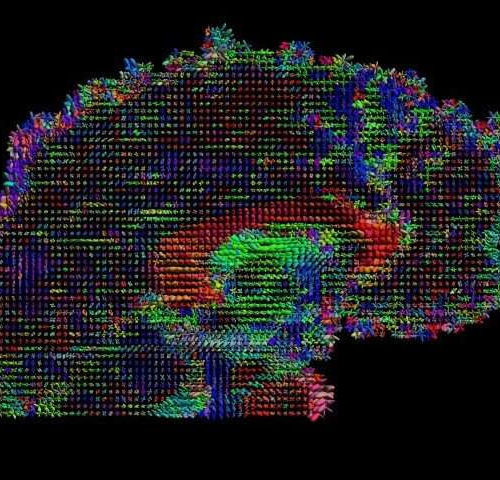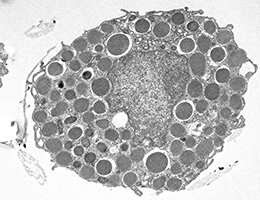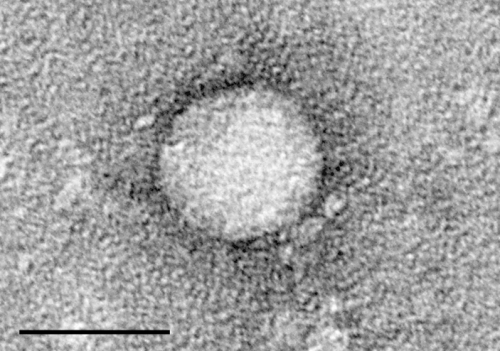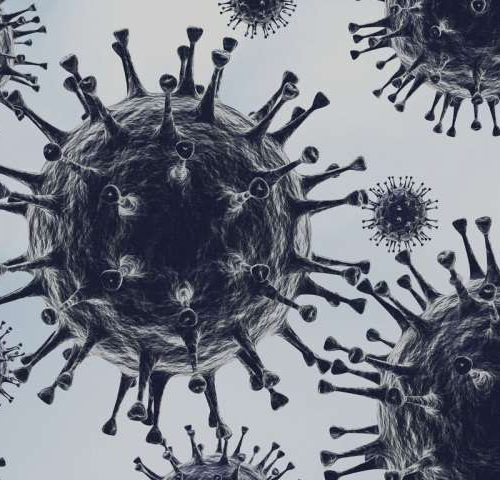TRINITY COLLEGE DUBLIN When drugs to kill microbes are ineffective, host-directed therapy uses the body’s own immune system to deal with the infection. This approach is being tested in patients with COVID-19, and now a team of researchers at Trinity College Dublin has published a study showing how it might also work in the fight...
2 immunotherapies merged into single, more effective treatment
Mouse study suggests strategy may work against variety of cancers WASHINGTON UNIVERSITY SCHOOL OF MEDICINE RESEARCHERS AT WASHINGTON UNIVERSITY SCHOOL OF MEDICINE IN ST. LOUIS HAVE COMBINED TWO TYPES OF IMMUNOTHERAPY INTO A SINGLE TREATMENT THAT MAY BE MORE EFFECTIVE AND POSSIBLY SAFER THAN CURRENT… view more CREDIT: JULIA WAGNER Some of the most promising...
Gene in fat plays key role in insulin resistance
Developing a better understanding of KBTBD2 could have implications for Type 2 diabetes, UTSW researchers say UT SOUTHWESTERN MEDICAL CENTER THE ILLUSTRATION SHOWS THE IDENTIFICATION OF KBTBD2 AS A KEY GENE IN THE MAINTENANCE OF WHOLE-BODY INSULIN SENSITIVITY THROUGH ITS ROLE IN FAT. LOSS OF KBTBD2 LEADS TO THE ACCUMULATION… view more CREDIT: UT SOUTHWESTERN...
A never-before-seen cell state may explain cancer’s ability to resist drugs
MEMORIAL SLOAN KETTERING CANCER CENTER Cancer’s knack for developing resistance to chemotherapy has long been a major obstacle to achieving lasting remissions or cures. While tumors may shrink soon after chemotherapy, many times they eventually grow back. Scientists once thought that unique genetic mutations in tumors underlay this drug resistance. But more and more, they...
A never-before-seen cell state may explain cancer’s ability to resist drugs
Cancer’s knack for developing resistance to chemotherapy has long been a major obstacle to achieving lasting remissions or cures. While tumors may shrink soon after chemotherapy, many times they eventually grow back. Scientists once thought that unique genetic mutations in tumors underlay this drug resistance. But more and more, they are casting their eyes on...
Brain thickness and connectivity, not just location, correlate with behavior
by Matt Swayne, Pennsylvania State University New techniques and technologies of big data are helping researchers better understand the brain. In this study, a Penn State team studied data from the Human Connectome Project to better understand the correlations between brain features, such as cortical thickness and connectivity, and various behaviors. Credit: David Shattuck and...
The immune system: Knocked off balance
by Ludwig Maximilian University of Munich The immune system: Knocked off balanceInstead of protecting us, the immune system can sometimes go awry, as in the case of autoimmune diseases and allergies. An LMU team has dissected how mast cells regulate their calcium levels to keep the immune response under control. Credit: IMCES UK Essen/LMU Instead...
Dual role discovered for molecule involved in autoimmune eye disease
IL-17, known for driving inflammation, also puts on the brakes, NIH scientists report NIH/NATIONAL EYE INSTITUTE AFTER ACTIVATION THROUGH ITS T-CELL RECEPTOR, TH17 CELLS PRODUCE IL-17A, WHICH BINDS TO ITS OWN RECEPTOR ON THE TH17 CELL. THIS ACTIVATES THE NFΚB PATHWAY. NFΚB DRIVES PRODUCTION OF IL-24,… view more CREDIT: RACHEL CASPI, PH.D. (NEI) The inflammatory...
New method developed for non-invasive risk assessment following hepatitis C recovery
by Johannes Angerer, Medical University of Vienna The chronic viral inflammation of the liver that occurs in hepatitis C results in the formation of inflexible scar tissue in the form of fibrosis/cirrhosis of the liver. This impedes the flow of blood through the organ, with resulting hypertension in the portal vein. In the majority of...
Driving immunometabolism to control lung infection
by Ciara O’shea, Trinity College Dublin When drugs to kill microbes are ineffective, host-directed therapy uses the body’s own immune system to deal with the infection. This approach is being tested in patients with COVID-19, and now a team of researchers at Trinity College Dublin has published a study showing how it might also work...

